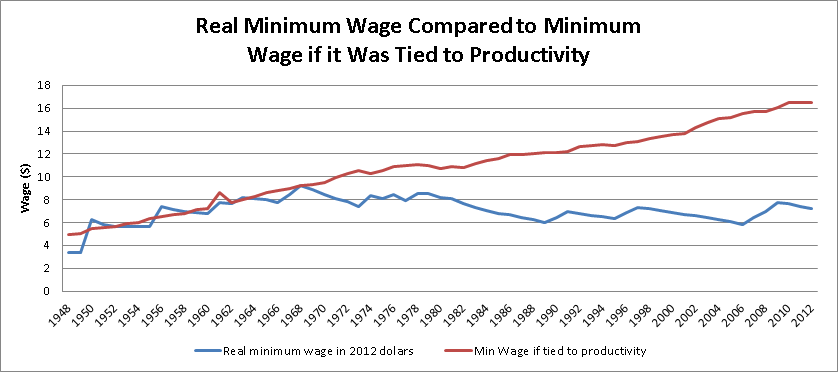 JOHN SCHMITT, [email]
JOHN SCHMITT, [email]
Senior economist with the Center for Economic and Policy Research, Schmitt wrote the new paper “Why Does the Minimum Wage Have No Discernible Effect on Employment?” which finds “modest increases in the minimum wage — such as the one proposed by President Obama in his State of the Union address — have little impact on employment, due to adjustments by employers and workers.”
Schmitt said today: “This is one of the most studied topics in economics, and the evidence is clear: modest minimum wage increases don’t have much impact on employment. An increase to $9 per hour would be hugely important for the workers getting it, but the idea that this would lead to less employment is just not supported by the evidence.”
“Congressional proposals to raise the minimum wage to above $10 per hour or President Obama’s call for a minimum wage of $9 per hour are well within the range of historical increases and would still leave low-wage workers behind reasonable historical benchmarks based on cost-of-living or productivity growth.”
As CEPR’s Dean Baker and Will Kimball noted in a blog post yesterday, “The purchasing power of the minimum wage peaked in the late 1960s at $9.22 an hour in 2012 dollars. That is almost two dollars above the current level of $7.25 an hour.” They also noted that the minimum wage has not kept pace with productivity increases over the past 44 years, as it had from 1947-1969 — a period when economic “[g]rowth averaged 4.0 percent annually” and “the unemployment rate for the year 1969 averaged less than 4.0 percent.” But the link between productivity growth and minimum wage ended in the 1970s.
Baker and Kimball note that “If the minimum wage had kept pace with productivity growth it would be $16.54 in 2012 dollars.”